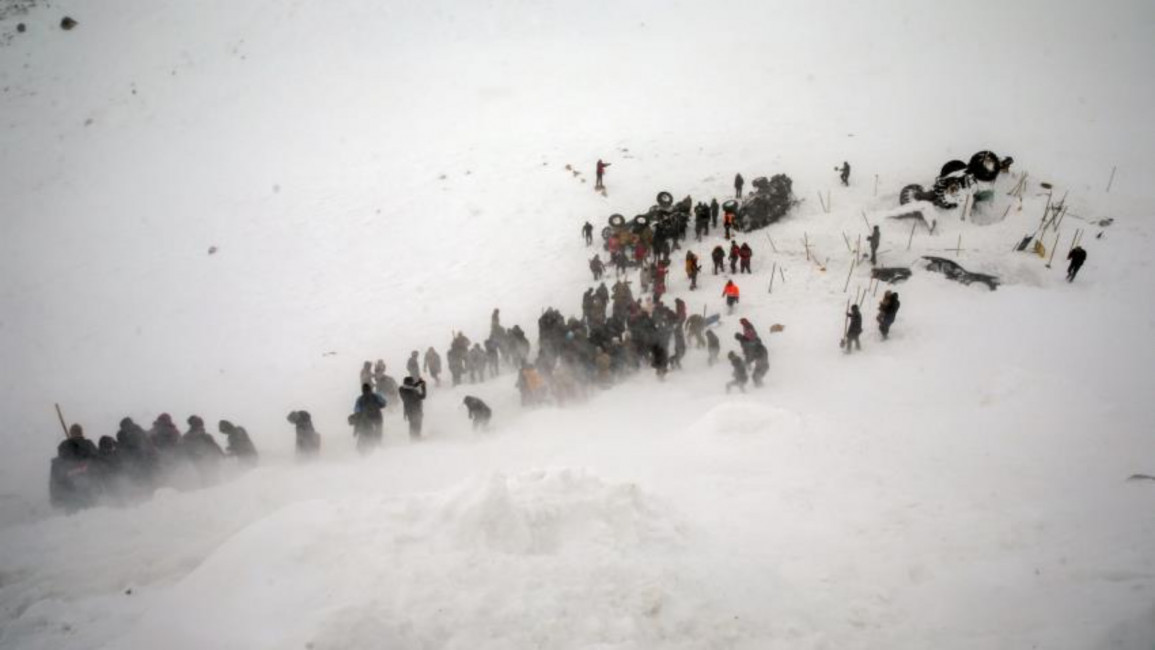Avalanche death toll in Turkey rises to 41
The death toll from two avalanches in eastern Turkey rose to 41 on Thursday, the government's disaster management agency said, as rescue teams continued a difficult search for two missing people.
Five were killed in the first avalanche in Van province bordering Iran on Tuesday, only for rescuers to be hit by a second avalanche the following day.
Three more bodies were recovered Thursday, the DHA news agency said, with the AFAD disaster agency saying a total of 84 people had been injured in the twin avalanches.
Read More: Why Turkey wants to avoid taking sides in the US-Iran standoff
Rescue efforts continued despite adverse weather conditions that caused transport problems. Authorities have banned civilian access to the scene, DHA reported.
No warning
Television images showed dozens of people scrambling up the mountains, digging through snow in blizzards to find those trapped under the icy deluge.
Health Minister Fahrettin Koca warned the number of casualties could rise as local media reported an unknown number of people could still be under the snow.
A snow-clearing vehicle operator Bahattin Karagulle alerted local authorities about the first avalanche after his escaped the snow, Milliyet daily reported.
Dozens of rescue workers have been working around the clock after the first disaster, whilst gendarmerie officers and firefighters provided assisted, along with local residents.
A special military plane with 75 gendarmerie officers and other rescue officials were on their way from Ankara, AFAD and the defence ministry said at the time of the tragic disaster.
Last month, the eastern province of Elazig was hit by a powerful 6.7-magnitude earthquake, killing 41 people and injuring over 1,600 others.
A 2009 avalanche in the northeastern province of Gumushane killed 11 climbers in the Zigana mountains.



